Unpleasant sensations in the genital area, problems with urination and disturbances in sexual activity - all these symptoms can indicate the development ofprostatitis.
Unfortunately, in the early stages the disease practically does not appear at all, as a result of which the man turns to the urologist too late and the disease manages to develop into a chronic form.
So, what signs should you pay attention to and how to treat chronic prostatitis?
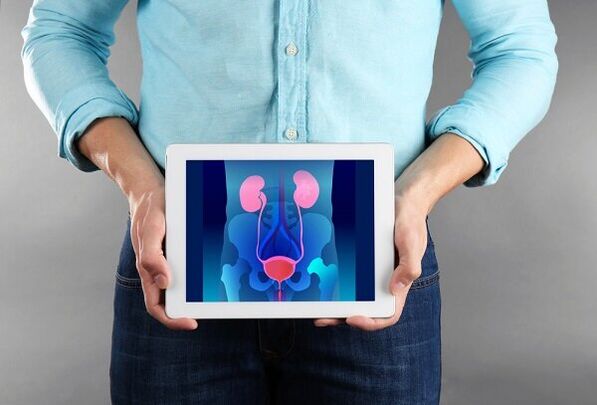
What is chronic prostatitis?
Chronic prostatitis- an inflammatory process in the prostate that lasts a long time. The consequences of the disease are the disruption of the functioning of the gland and its physiological changes.
Over time, a man begins to experience severe discomfort, which has a direct impact on his lifestyle.
This disease is one of the most common problems related to men's health. According to statistics, 50% of men aged 50 and over have prostate problems. As for the chronic form of the disease, it is typical for young people under 40 years of age.
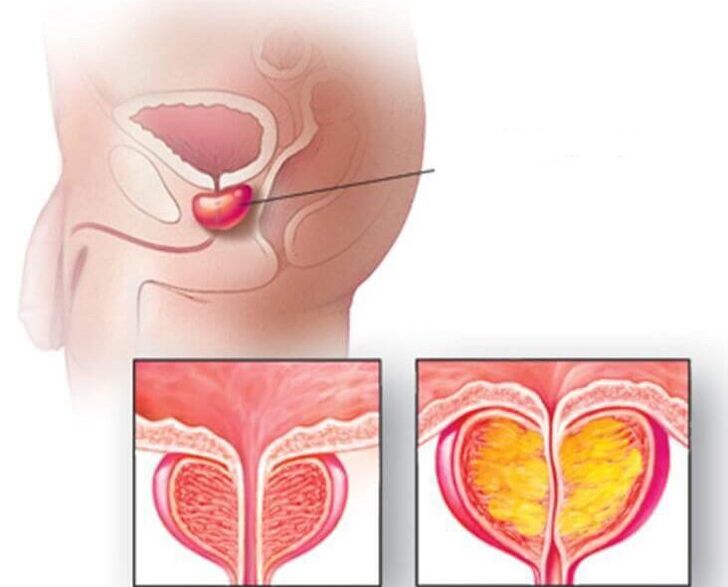
Distribution
Chronic prostatitis in men has several forms, different in symptoms and causes.The following types of the disease are distinguished:
- bacterial;
- latent;
- asymptomatic;
- stagnant.
The characteristic symptoms of the disease, as well as the treatment, depend on the form of chronic prostatitis.

Bacterial form of the disease
This form is more common and does not cause difficulties in establishing the diagnosis. Typically, the results of urine tests in a patient show a high content of leukocytes, which indicates the spread of pathogenic microflora.
The bacterial form of prostatitis can occur against the background of decreased immunity or as a complication after a previous disease. It is treated with antibiotics and the treatment regimen depends on the type of pathogen.
Latent prostatitis
The latent form can remain undetected for up to three months or more. Its second name is pelvic pain syndrome. The cause of the development of the disease can be inflammatory and non-inflammatory processes. The latent form is characterized by the following symptoms:
- increase in the content of leukocytes in the test results;
- constant annoying pain in the genital area;
- problems with urination.
The main difficulty in diagnosis is that, despite the presence of leukocytes in the analysis, laboratory methods cannot identify the causative agent of the infection.
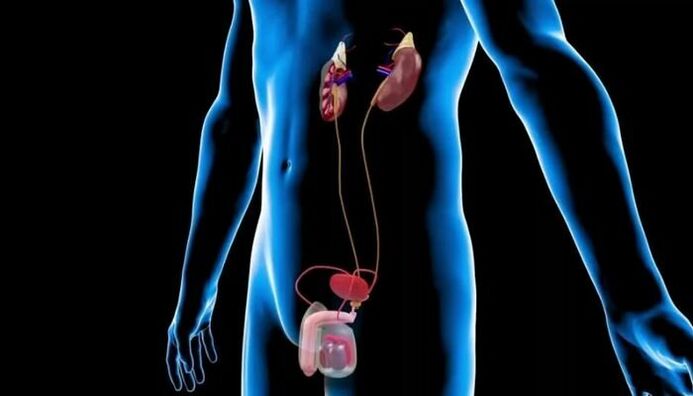
Asymptomatic inflammatory form
The most dangerous form of chronic prostatitis. In this case, the characteristic changes of the disease occur in the tissues of the prostate gland, but no symptoms indicate the presence of inflammation. The asymptomatic form is usually discovered by chance or when the disease reaches a critical peak.
After properly selected therapy, the man's health is completely restored.
Stagnant or non-infectious
The non-infectious form of chronic prostatitis appears as a result of blood circulation disorders in the pelvic organs. This form of the disease accounts for approximately 1/3 of all cases of prostatitis in young men. Characteristic symptoms are difficulty urinating, disturbances in intimate life and pelvic pain.

Inflammation can be caused by a sedentary lifestyle, injuries, bad habits, etc.
Causes of the disease
The reasons for the development of chronic prostatitis are quite different. Among the most common are:
- irregular sexual relations or frequent change of partners;
- complete abstinence from sex;
- injuries and diseases of the pelvic organs;
- frequent overheating or hypothermia of the pelvic area;
- congenital anomalies of the structure of the genitourinary organs;
- untreated infectious or viral diseases;
- abuse of bad habits;
- work in conditions of constant intoxication of the body;
- metabolic disease;
- problems with the musculoskeletal system.

Important!In the process of treating prostatitis, it is extremely necessary to identify the main cause of the disease. This will help not only to get rid of the problem, but also to avoid relapses in the future.
Symptoms of chronic prostatitis
Despite the fact that chronic prostatitis can be asymptomatic for a long time, the following signs may indicate the disease:
- Severe discomfort in the perineum and genital area. Unpleasant sensations can be present constantly or occur at a specific moment, for example, after urination.
- Pain radiating to the coccyx or pubic area.
- Sensation of a foreign body in the anus, a little closer to the perineum.
- Increased urge to urinate (especially at night).
- Feeling of fullness in the bladder even after emptying it.
- Weakening of sexual desire, decrease in erection.
- Small mixtures of blood in the seminal fluid.
- Hemorrhoids.
- Extension of veins through the skin of the scrotum.
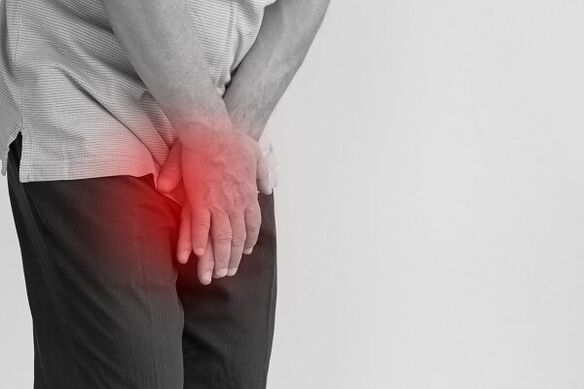
The symptoms described above can lead to the development of neurological abnormalities. As a result of frequent urination, a man cannot sleep and work enough; he begins to suffer from headaches, drowsiness, irritability and even outbursts of aggression.
Diagnosing
The diagnosis of chronic prostatitis begins with a visit to a urologist. If the patient is concernedfrequenturination, sexual dysfunction and perineal pain, then the diagnosis is established quite quickly.
Difficulties in establishing the diagnosis arise in the case of asymptomatic development of the disease. In this case, the man is prescribed a series of additional examinations, including the use of special instruments. During the diagnosis, you can learn from a urologist what prostatitis is and how the disease is treated.
There are the following methods for diagnosing chronic prostatitis:
- Taking samples for laboratory research. This method is suitable for patients with a bacterial form of the disease, as it allows you to identify the causative agent of inflammation and choose the most effective therapeutic approach. Most often, a general blood and urine test is taken for research.
- Ultrasonography. If prostatitis is suspected, the patient is prescribed a transrectal examination. This method allows you to determine the exact stage of the disease and assess the general condition of the prostate gland. In addition, ultrasounds can help eliminate the risk of serious complications. Also, sometimes patients are prescribed a repeated ultrasound to monitor the progress of treatment.
- Tomography.MRI is prescribed in cases where other diagnostic methods are ineffective or the patient is suspected of having a malignant process in the prostate.
- Determination of PSA content(prostate-specific antigen). When PSA is above 4 ng/ml, additional diagnostic procedures are indicated, including prostate biopsy to rule out cancer.
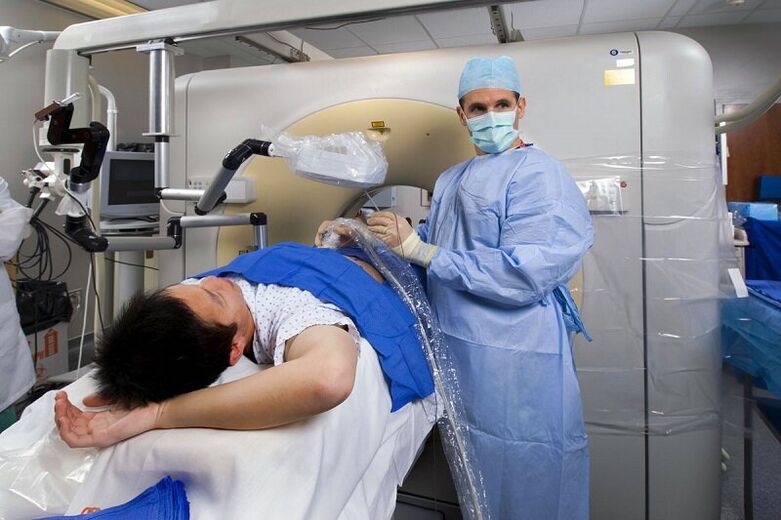
Important!Usually, when chronic prostatitis is diagnosed, several methods are combined at the same time, for example, laboratory testing, palpation and ultrasound.
Treatment of chronic prostatitis
Is it possible to cure chronic prostatitis? If chronic prostatitis is not too advanced, then it can be treated. If the disease has reached its final stage and the walls of the prostate begin to deform, it is possible to alleviate the patient's condition and achieve remission.
For successful treatment, it is necessary to immediately consult a competent doctor who will tell you how to cure chronic prostatitis and what to take for it. The urologist's recommendations must be strictly followed. Treatment should not be interrupted, otherwise a relapse may occur.
It currently exists3 ways to treat chronic prostatitis:
- medicinal (taking medications);
- non-drug (using different equipment and procedures);
- surgical (otherwise – surgical).
Drug treatment
Treatment for bacterial and non-bacterial prostatitis is different. In the first case, treatment with antibiotics is necessary. But sometimes the treatment regimen can be the same: antibiotics are prescribed for non-bacterial forms to control the result.
If there is improvement, antibiotics should be continued.
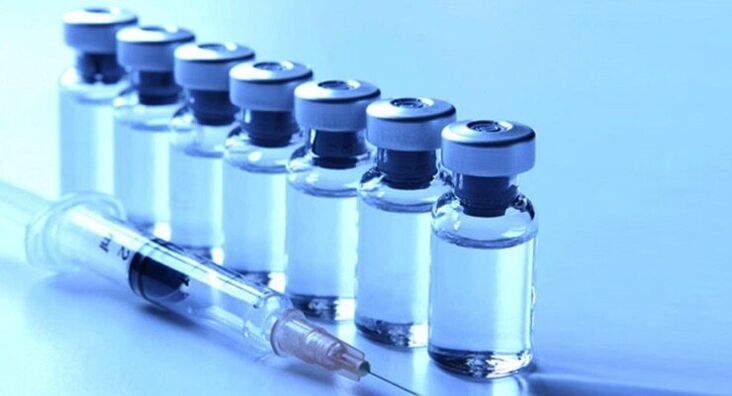
Treatment of chronic prostatitis should be comprehensive. Only in this case the maximum effect can be achieved.
For chronic prostatitis, the following medications can be prescribed:
- antibiotics;
- immunostimulating drugs;
- vasodilator tablets;
- antispasmodics;
- anti-inflammatory drugs;
- angioprotectors (drugs that stimulate the metabolism of vascular cells).
Alpha-blockers can also be used in treatment, but only after receiving a course of antibiotics. Medicines for chronic prostatitis help relax the smooth muscle tissue of the prostate and also relieve tension well.
In some cases, antihistamines and antidepressants may be prescribed.
Non-drug therapy
Drug therapy is recommended to be combined with physiotherapeutic procedures. The following physiotherapy procedures are most often used:
- Laser therapy.
- Electrophoresis.Special treatment solutions are used that penetrate the tissues using the electrode method.
- Temperature treatmentusing microwave.
- Phonophoresis. Exposure of the diseased organ to ultrasonic waves.
The methods can be used either alone or in combination.
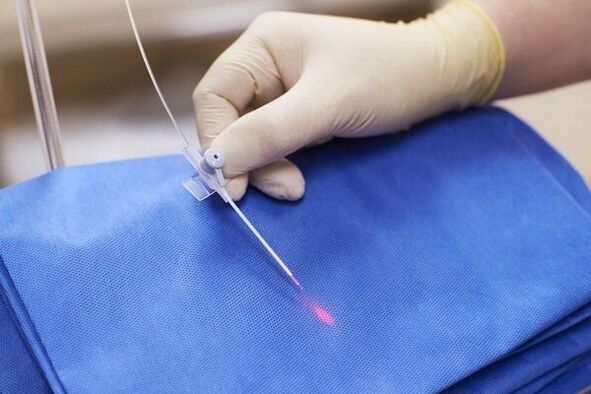
Surgical intervention
If drug therapy and physical procedures do not help, then the disease can only be eliminated surgically. This happens when chronic prostatitis is complicated by a sclerotic process.
With a sclerotic prostate, the pathology affects other parts, especially the ducts, from which the secretions of the prostate are removed, and the seminal tubercles. The entire structure of the reproductive organs changes and the quality of the man's life is significantly reduced.
In this case, endoscopic surgery is performed. Even chronic congestive prostatitis can be cured surgically.
Treatment can be done both in budget medical institutions and paid clinics. The cost of therapy depends on the severity of the disease and the duration of the course. In terms of time, prostatitis at an early stage can be cured within a month, and complicated prostatitis can be cured in 3-4 months.

Treatment of chronic prostatitis depends on the health condition, age and lifestyle of the patient. If you follow all the doctor's recommendations, you are likely to recover completely.
However, no one will guarantee eternal forgiveness. Patients who have eliminated the cause of the disease have an increased chance of recovery.
Timely consultation with a doctor is also of great importance. Do not delay the diagnosis and treatment of prostatitis. The sooner you get medical help, the lower the risk of complications.
Treatment at home
Chronic prostatitis can be treated at home if there are no complications. In case of a disease that recurs frequently or in its complicated form, it is necessary to take medication.
To restore men's health, you can also use traditional medicine recipes. This therapy is adjunctive in nature, that is, it is used as an addition to drug treatment.
Before using any alternative medicine, you should consult your doctor.
Using folk remedies, you can relieve pain, remove inflammation, normalize the urination process and generally strengthen the immune system.
Pumpkin seeds
In the treatment of prostatitis, pumpkin seeds are used quite often. They have a large amount of zinc, and the male body especially needs this trace element.
Only dry pumpkin seeds that have not undergone heat treatment are suitable for treatment. They just need to be peeled and eaten. For a full course of therapy, 0. 5 kg of product is enough.
Such courses should be carried out every year until full recovery. Every day it is enough to eat 30-40 seeds before a meal. Do not rush, the seeds must be chewed completely.
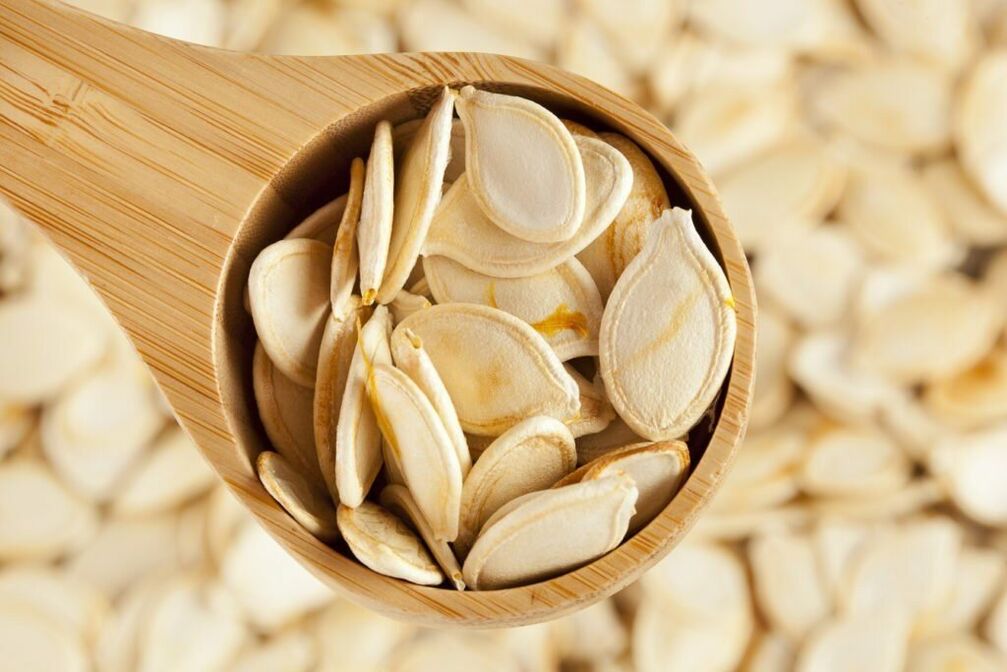
You can also make desserts that are good for men's health. The recipe is simple: peel the pumpkin seeds, grind them and mix well with honey (200 g).
The result should be a dough-like consistency. From this mixture, roll small balls with a diameter of 3 cm. You should eat 2 of these balls every day on an empty stomach. These sweets cannot be swallowed immediately, they must be chewed for 2-3 minutes.
Hazelnut infusion
To prepare a healing tincture you will need hazel leaves or bark. You can create both ingredients, just remember to alternate them. Due to its hardness, the bark takes 2 times longer to ripen. For the preparation it is necessary to use only fresh materials.
The recipe is as follows: 1 tbsp. l. bark or hazelnut leaves, pour 1 glass of boiling water (200 ml), close the lid and leave for 30 minutes. Then strain it using cheesecloth. Take 4 times a day, ¼ cup. The course of treatment lasts one week.
Sagebrush
This herb has long been famous for its beneficial properties. With its help you can deal with any infection. To get rid of prostatitis, you need to undergo a complex treatment, which includes washing the urethra with infusion and taking wormwood orally.
You will need 100 g of dry grass. It should be chopped as finely as possible in the hands and sieved in a sieve. The smaller fragments are useful to take in dry form, and the larger ones are useful for preparing an infusion, from which urethral douches and micro-enemas are made.
Thus, the body has a double effect: it is cleansed of infections and relieves inflammation.
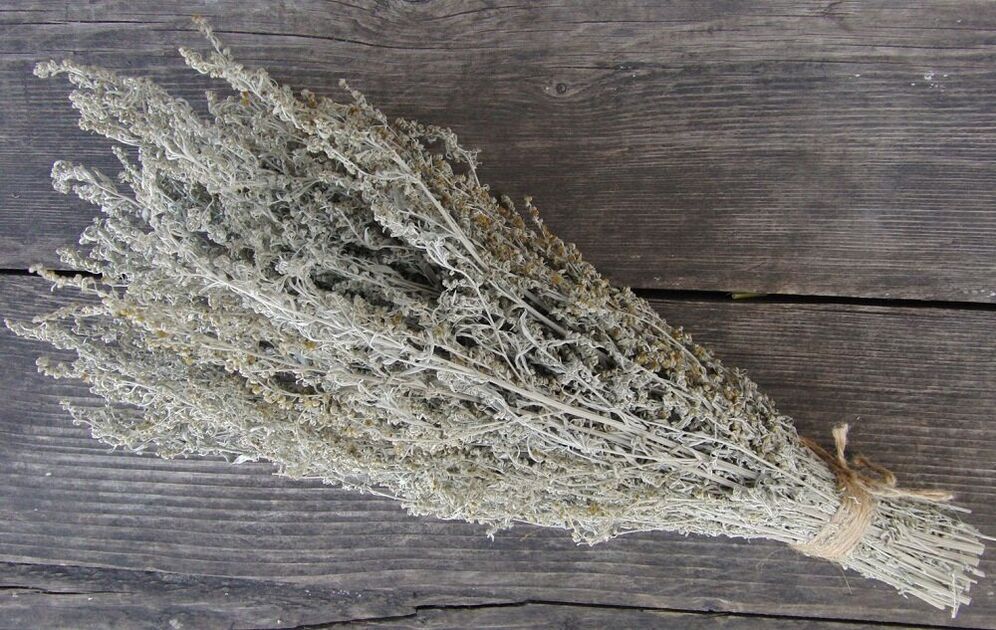
Dry pelin should be taken once a day with a glass of water. Washing and micro enemas are done every evening. The course of therapy lasts one week.
A decoction for washes and enemas is simple to make. 1 spoon. dry herbs pour 1 liter. boiling water Wait until the liquid cools to 30 degrees and drain. For one procedure, 50 ml of infusion is enough. Injections into the urethra and anus are made using a syringe.
Remember that for each procedure you need to take a separate syringe so that you do not accidentally get an infection. The fluid must be injected sharply into the urethra: this way the fluid will move away.
Medicinal liquid
To effectively treat chronic prostatitis, you can drink juices. It is best to drink freshly squeezed vegetable juices; drink fromasparagus and cucumber, beetroot, carrot. You should drink 600 ml per day. The course of treatment is 10 days.
There are contraindications, it is necessary to consult a specialist.
Disease prevention
Prostatitis is quite difficult to treat and tends to recur. That is why men aged 30 and over should pay attention to the prevention of the disease.
The main preventive measures include:
- having a regular sex life with a partner;
- playing sports and special gymnastics;
- taking multivitamins to strengthen the immune system;
- respecting sleep and waking up;
- reduction of stressful situations;
- rejection of bad habits;
- regular visits to the proctologist;
- timely treatment of colds and viral diseases.
Prevention should include all areas of a man's activity, from nutrition to sexual intercourse. It is important to understand that prostatitis is treatable and you can continue to live a full and active life.























